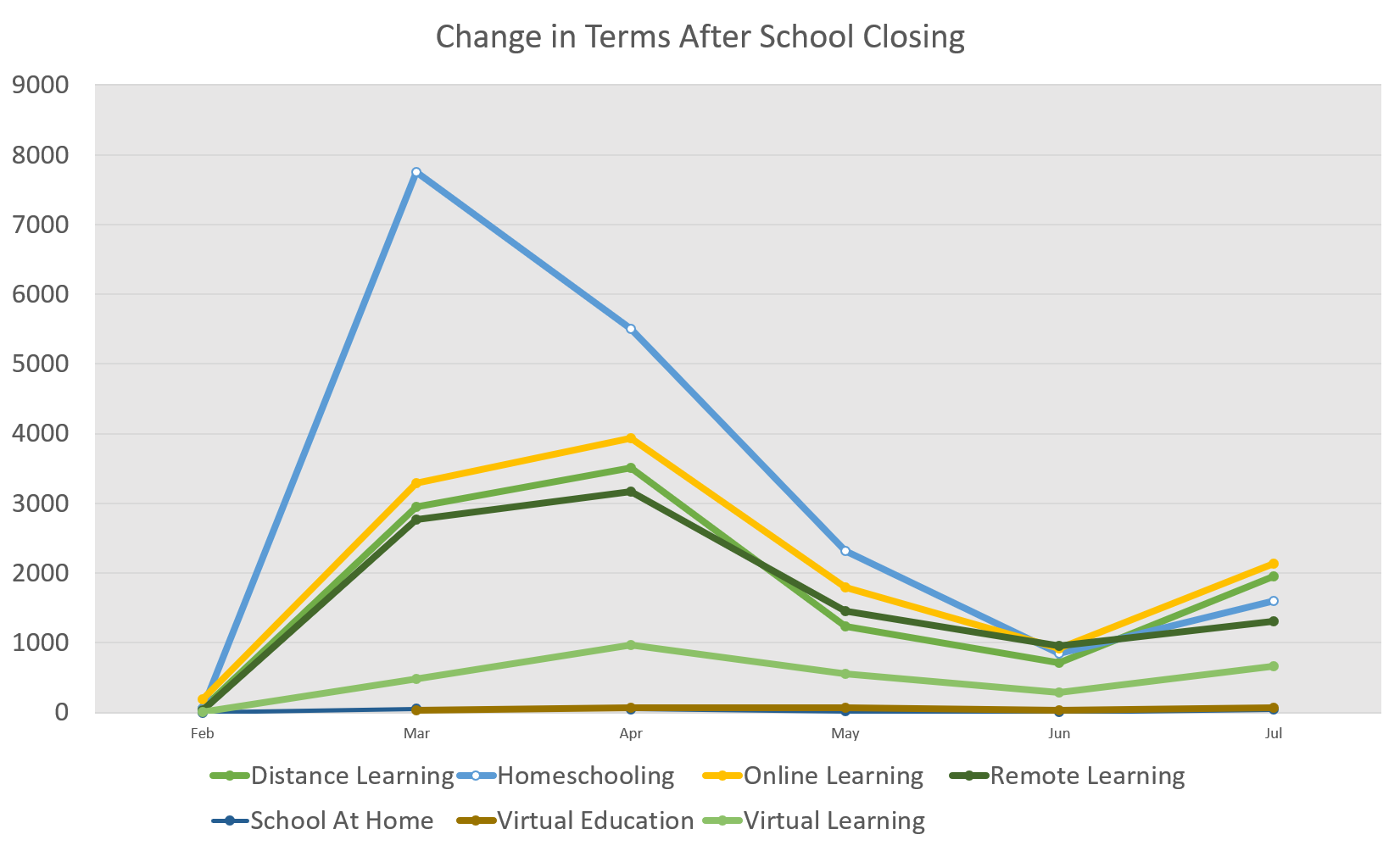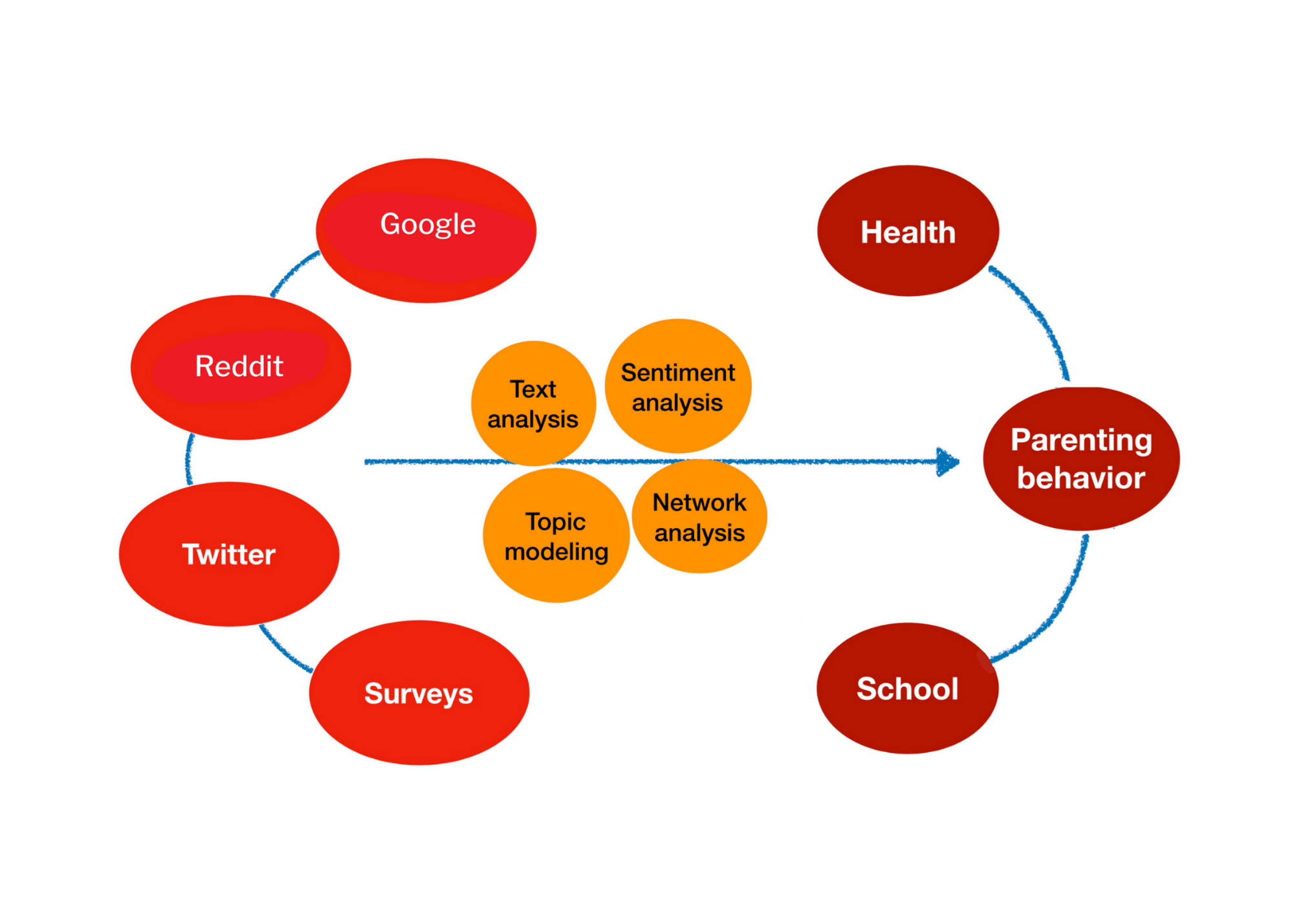Parenting
Today, three quarters of parents in the U.S. use some form of social media, and the vast majority use social media to receive support and information on parenting.
Researchers are examining the content and accuracy of this parenting information, the degree to which it may vary according to parent characteristics, and what this information can inform about attitudes and behaviors of parents.
A quarter of online parents use Twitter and its content is publicly available, making it an apt platform for study. Indeed, unlike other networks, Twitter is used by a variety of people for disseminating information, including that made available by both experts such as doctors and child psychologists, and parents.
Throughout the project, researchers use data from Twitter to investigate the types of information parents are giving and receiving on social media, the scientific accuracy of information they share, the distinct topical profiles of parents on Twitter, and how parents feel about the information they are sharing. While our initial focus has been on Twitter, we will be expanding our work to include other organic forms of data, including Reddit and Google.
What makes someone a “good parent”?
Self-reported data on parenting can suffer from social desirability bias, as parents aim to present ideal versions of their parenting to researchers. Data from social media, by contrast, offer a source of information about parents’ interests and behaviors that resembles the objective nature of observations but also reflects the everyday lives of a large (non-representative) number of parents and families. In order to learn more about parental values, the research team will collect tweets using phrases related to “good parent” and “bad parent” and use topic models to evaluate trends. The researchers will also compare how these trends differ when users discuss “good moms” compared to “good dads.”
In March 2020, the novel SARS-CoV-2 virus created both a public health crisis as well as an education crisis.
Because there were no strategies in place for moving education into the home, the onus for structuring and delivering learning fell completely on caregivers. A chief concern with regard to this shift is that well-documented socioeconomic inequalities in education will expand even more over the 2020-2021 school year, creating what some are calling the “COVID-19 gap.”

There was a steep increase in the mentions of homeschooling and distance learning in March 2020, as most of the schools in the U.S. begin announcing the end of in-person instruction.
Do higher versus lower SES parents differ in their online discussions of “homeschooling” and the types of resources they are seeking through social media interactions?
We know that parents of higher socioeconomic status (SES) have greater access to and information about educational resources than lower SES parents, and that these differences partially explain SES-based gaps achievement. It follows that these resource differences will play a key role in the COVID-19 gap, as learning moves into the home and increasingly online. Our research will use social media data to analyze the types of online resources that parents across the socioeconomic distribution are accessing related to “homeschooling” and related terms to understand the process by which these inequalities may emerge and address the potential “COVID-19 gap.”
Project Team
This research team was led by Pam Davis-Kean (University of Michigan) and Rebecca Ryan (Georgetown University). Other faculty members involved are Lisa Singh (Georgetown University) and Zeina Mneimneh (University of Michigan). Doctoral students working on this research included Samantha Steimle (Georgetown University) and Nicholas Waters (University of Michigan).
Publications and Presentations
Davis-Kean, P., Ryan, R., Singh, L., Waters, N., & Steimle, S. (2021, April 9). The Kids are Not All Right: Educational Inequalities in the Time of COVID-19 [Conference presentation]. SRCD 2021 Biennial Meeting, Online.
Ryan, R., Davis-Kean, P., Singh, L., Steimle, S., & Waters, N. (2021, April 9). “Sharenting” on Social Media: Praise versus Criticism of Mothers and Fathers Online [Conference presentation]. SRCD 2021 Biennial Meeting, Online.

